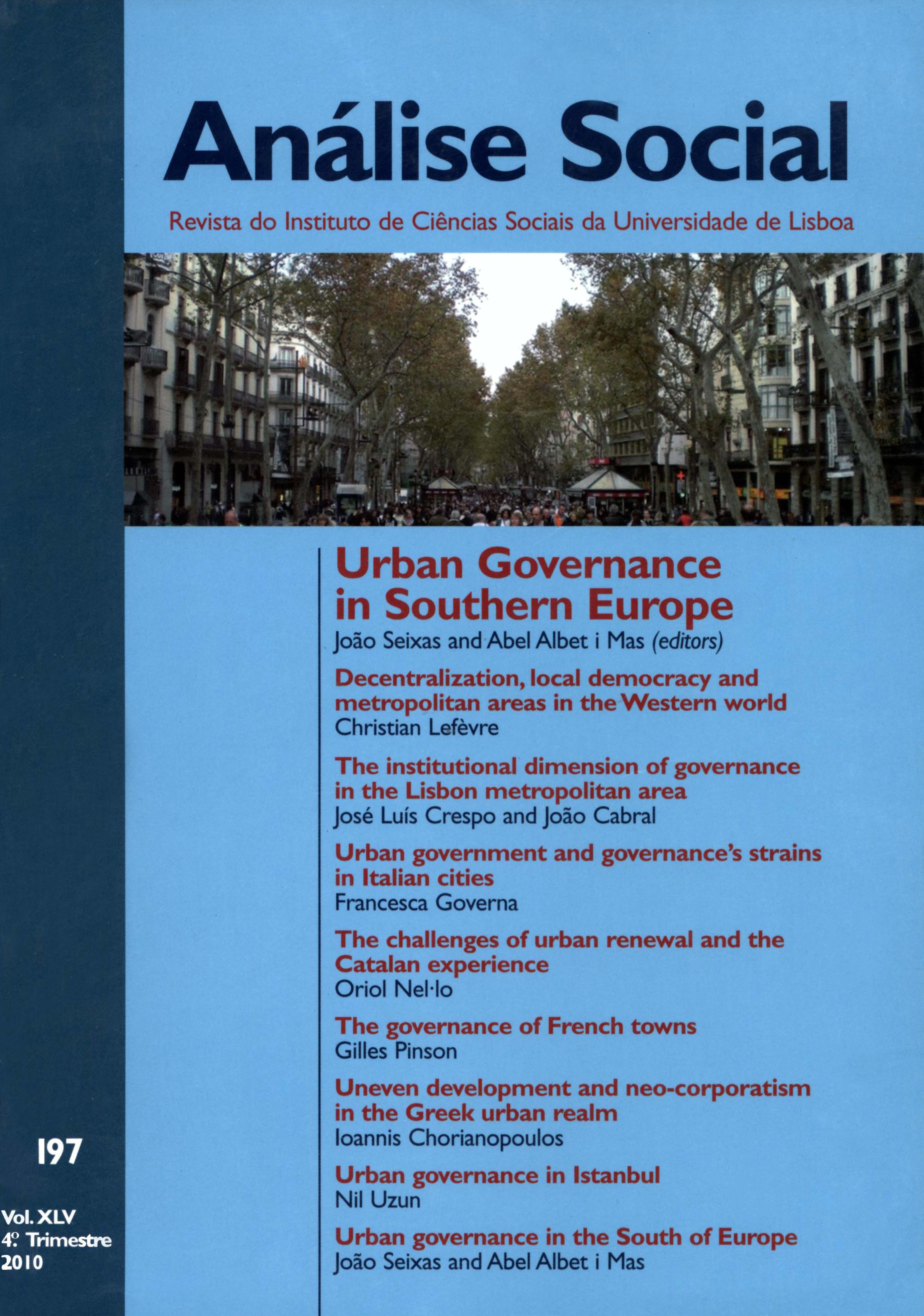The governance of French towns. From the centreperiphery scheme to urban regimes
DOI:
https://doi.org/10.31447/AS00032573.2010197.06Keywords:
France, centre-peripheries relationships, governance, urban regimesAbstract
This article defends the idea that it is no longer satisfactory to study the forms of governance of the French cities through the centre-periphery analytical framework. The devolution of new functions to urban governments, the transformations on capitalism, and States’ policies have turned French cities from mere implementation spaces of public policies built at other levels to central actors on urban policy production. The horizontal relationships connecting urban actors might be the first explanation for new scopes and shapes of local urban policies. It is therefore legitimate to study urban governance and policies in French cities through theoretical tools granting a primary role to the interactions between urban actors and groups and to the conflicts and coalitions in which they are involved. Amongst these theoretical tools the urban regimes approach seems particularly promising.



